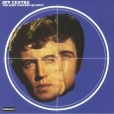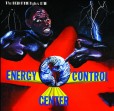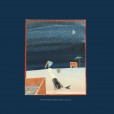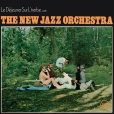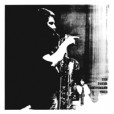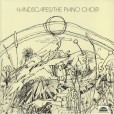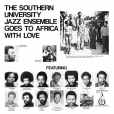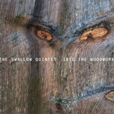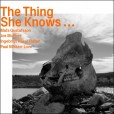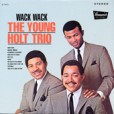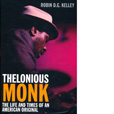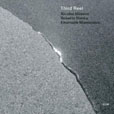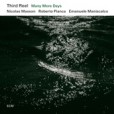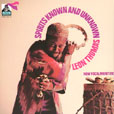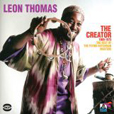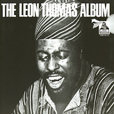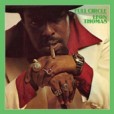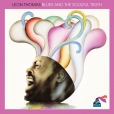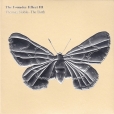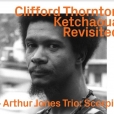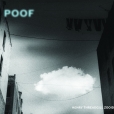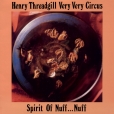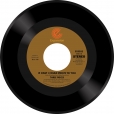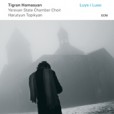Your basket is empty

Revered British jazz from 1969; the pianist leading a quartet featuring Harold McNair.
Originally out in 1969 on the Deram imprint which Decca set up for prog, new wave folk, and psych, Off Centre is obligingly eclectic. Cameron’s background in library and soundtrack music is opened up to the spirit of Roland Kirk. Best of several tasty modal numbers, the closer Troublemaker is a testifying rug-cutter, with a gritty flute solo by McNair.
Remastered at Abbey Road using the original tapes. New sleeve notes incorporate a recent interview with Cameron.
Though music journalists made a big deal recently about the release of a 1965 rehearsal tape by Derek Bailey’s Joseph Holbrooke trio with Gavin Bryars and Tony Oxley, those early efforts were mere tentative steps along a cliff edge wearing a line safely attached to Coltrane. There’s still a whiff of jazz to Bailey and Parker’s work with the Spontaneous Music Ensemble up to and including 1968’s Karyobin.
But with the addition of Jamie Muir — the first great free improvising percussionist who didn’t start out as a jazz drummer — and the way-leftfield electronics of Hugh Davies, the MIC leapt right off that cliff.
These six tracks — tight, electric, pointillistic, brilliant, uncompromising and exhilarating — sound like nothing else that came before.
In a word, seminal.
Neil Ardley, Jack Bruce, Jon Hiseman, Dave Gelly, Jim Philip, Dick Heckstall-Smith, Barbara Thompson, Derek Wadsworth, John Mumford, Michael Gibbs, Tony Russell, Derek Watkins, Harry Beckett, Henry Lowther, Ian Carr, George Smith, Frank Ricotti…
‘The range, invention and depth evident on Le Dejeuner Sur L’Herbe outstrips most large ensemble jazz albums of the time; at times muscular and powerful, at others delicate and sensitive, the interplay of the musicians, arrangements and compositions make for a stand-out recording that bristles with confidence and energy.’
The core trio joined by Joe McPhee, playing saxophone and pocket trumpet, in readings of compositions by Don Cherry, PJ Harvey, Ornette Coleman, McPhee himself, James Blood Ulmer and Frank Lowe.
Judging by the first few chapters, this is a tremendous biography, completely sussed — profound empathy, political nous, and a love of the music in door-stopping measure. Looking forward to it a lot.
Nicolas Masson (tenor saxophone, clarinet), Roberto Pianca (guitar), Emanuele Maniscalco (drums).
The singer’s 1969 debut under his own name — after a stint in Pharoah Sanders’ group — is his best album.
A beautiful, succinct version of Master Plan, a lovely Song For My Father, an angry Damn Nam. Malcolm’s Gone is a forgotten classic: intensely spiritual eastern sounds, with Pharoah Sanders at his most focussed.
Cecil McBee, James Spaulding, Roy Haynes, Lonnie Liston Smith, Richard Davis…
The CD offers three bonus tracks, including A Night In Tunisia, and a live version of Damn Nam (Ain’t Goin’ To Vietnam).
HIQLP and BGPCD from Ace.
Thornton’s BYG album Ketchaoua: the leader on cornet and percussion, with Grachan Moncur on trombone, Archie Shepp on soprano sax, Arthur Jones on alto, Bob Guerin and Earl Freeman on bass, Sunny Murray on drums, and Dave Burrell on piano.
Plus Arthur Jones’ own Scorpio album, also for BYG in 1969: an excellent, unsung set, new-thing but rooted, with shades of Ornette and ESP, Johnny Hodges and Sonny Rollins.
Sonatas or concerti, says Threadgill: Come and Go for saxophone and cello; Poof for saxophone and guitar; Beneath the Bottom for trombone; Happenstance for flute and drums; Now and Then for tuba and guitar.
‘By this point, the group’s reliance on the serial intervallic system that was the basis of the group’s unique sound is more felt than prescribed, relying on the musicians to fill in the rest.
‘All the other hallmarks are here: unpredictable forms, percolating rhythms, the interwoven melodic strains; there’s really nothing else remotely like it.
‘The best part of it all is that Zooid is the one platform where one still gets to hear Threadgill really play. His keening saxophone wail retains that unmistakable gutbucket blues feel, with no small measure of church thrown into the mix.’
From 1991, the debut, milestone release of this lineup featuring dual tubas and dual electric guitars.
Armenian sacred music from the fifth to nineteenth centuries — chants, hymns and sharakans — in settings for choir and piano.
‘Extraordinarily beautiful… Hamasyan uses the characteristic, Eastern-hued Armenian modes to summon up an ancient world. It’s very different to Jan Garbarek and the Hilliard Ensemble’s million-selling Officium, but if you like that, you’ll love this’ (The Independent).
The Armenian pianist in a quartet setting, meditating on ancient folk melodies (including a couple of compositions by Komitas), between jazz and ambient.
